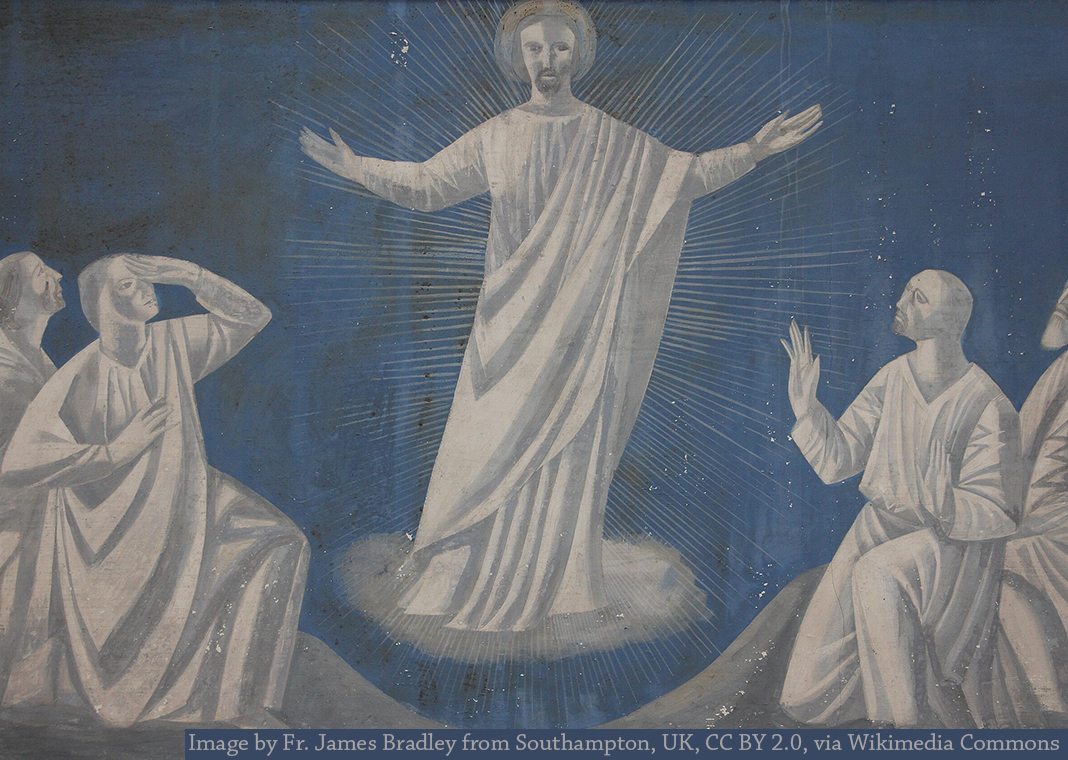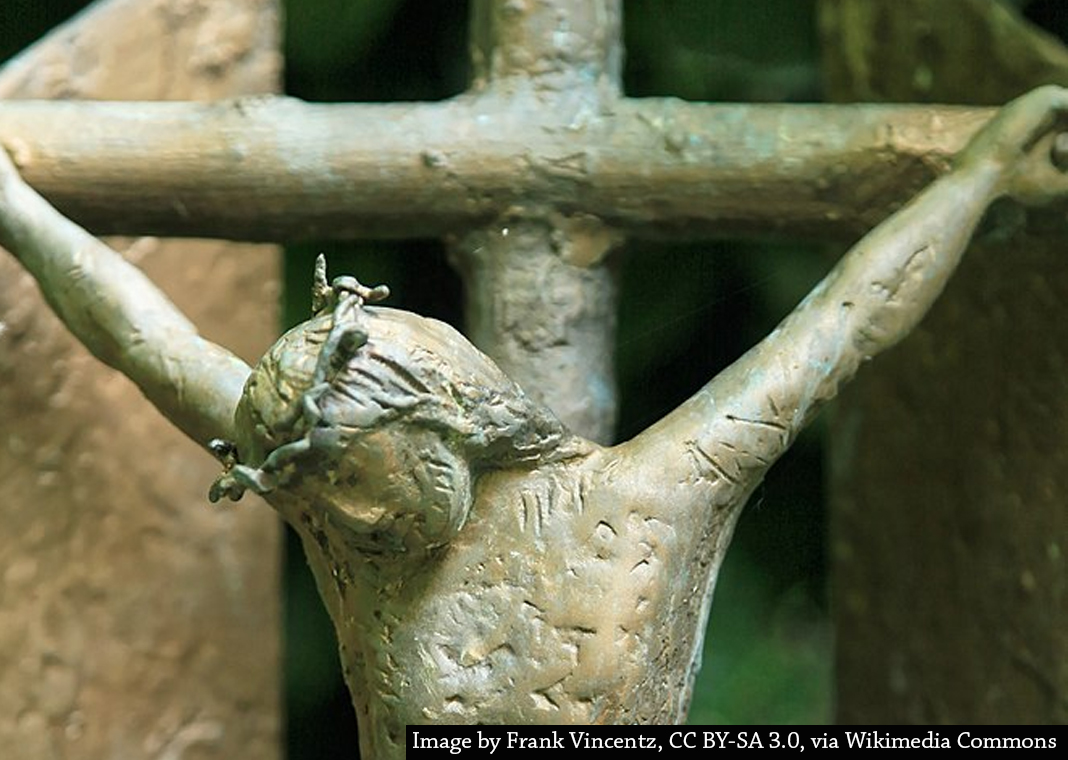
Have you ever stared at something or someone in wondrous awe? Or felt unprepared to take on a profoundly important mission?
Each time I contemplate the Second Glorious Mystery, the Ascension of our Lord, I realize how much Jesus had prepared the disciples for the evangelizing mission that lay ahead and for the time when his work on earth would come to completion. Yet as they stood in our Lord’s glorified presence upon that mountain in Galilee, “they worshiped him; but some doubted.” (Matthew 28:17) Despite everything they had witnessed and how much Jesus had prepared them, some still doubted. I can relate.
My dad suffered a stroke a few years ago. Those familiar with the sudden onset of catastrophic illness understand that nothing can prepare us for that. Being equipped with knowledge doesn’t necessarily translate to knowing how to act right away, and sacred accompaniment is vital on any new mission toward recovery.
Following his hospital discharge, the steady stream of home care visits began. These wonderful professionals—a registered nurse, health aide, and a team of occupational, physical, and speech therapists—were teachers with stethoscopes. For weeks they patiently taught Dad how to engage in his recovery plan. They respectfully addressed our questions and concerns. Their words gave us hope and put many of our fears to rest. On occasion, Dad responded so well under their skillful guidance that we would stare in wondrous awe, our minds momentarily unable to grasp what our eyes were witnessing.
The team eventually graduated Dad from home health care, handing over to my family the mission of his daily care and recovery. They had taught us what we needed for this phase and assured us that while not physically present in our home, they were still a part of the team, just in a different way. Still, I felt anxious and unprepared for this profoundly important caregiving mission. But through prayer, the Eucharist, and help from others, that sense of burden began to ease as I came to realize Jesus’ promise of accompaniment was indeed being fulfilled. In many ways, it was my own experience of the Ascension.
The disciples stared in wondrous awe as Jesus gloriously ascended into heaven. This moment had been foretold to them, yet they were momentarily unable to grasp what their eyes were witnessing. We don’t know how long the disciples stood gazing toward heaven, but after a time they were nudged into action by two men in white robes: “Men of Galilee, why do you stand looking up toward heaven?” (Acts of the Apostles 1:11) They returned to Jerusalem, filled with hope in Jesus’ promise that they would receive the Holy Spirit.
While the Ascension narratives are brief, I find great comfort in their deep and eternal message. They comforted me as I accompanied my dad in his recovery—from doubting whether I would act in the right way, to watching in wonder and awe at his recovery, and to accepting the mission of caregiver, I saw myself as the disciples who experienced Jesus’ Ascension.
May we continue to be inspired by Sacred Scripture and devote time to stare toward heaven in prayer and renew our commitment to the urgent mission to bear witness to Jesus and proclaim the Good News to the ends of the earth. Sometimes, “the ends of the earth” are not so far away—for me, the ends of the earth became the event of my dad’s stroke, when I had to live out my faith in the Risen Lord while feeling overwhelmed and woefully underprepared. May we step forward in confidence, knowing that Jesus is with us “always, to the end of the age.” (Matthew 28:20) May our faithfulness give us the “confidence that we too shall go where he, our Head and Source, has preceded us.” (CCC 661)
Image by Fr. James Bradley from Southampton, UK, CC BY 2.0, via Wikimedia Commons.





Be the first to comment